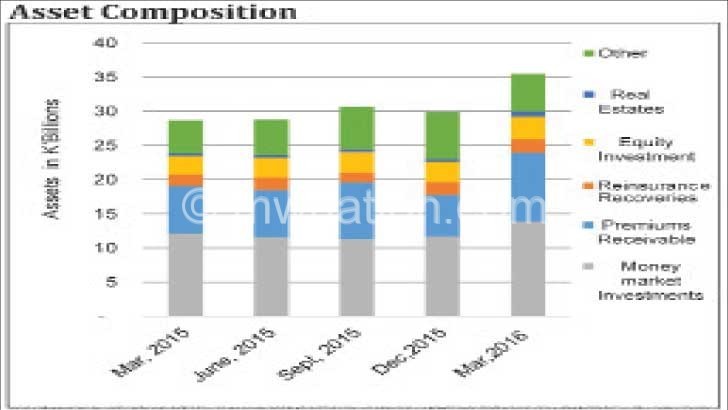Premium debts piling up amid ailing economy
The prevailing adverse economic condition which continues to stifle businesses in the country is impacting on insurance premium payments such that levels of premium debts have gone up according to the Insurance Association of Malawi (IAM).
Industry experts, however, warn that rising premium debt levels expose the insurance sector to potential credit and liquidity risks.
In an interview, IAM president Grant Mwenechanya said due to rising premium debts, the sector has been negatively affected with recent data from the Reserve Bank of Malawi (RBM) showing that the sector’s insurance debts constituted 88.1 percent of total capital against prudential limit of 50 percent.
The sector also recorded weakened earnings performance over the review period. The sector registered a combined ratio of 112.4 percent in March 2016 up from 99.4 percent in September 2015 mainly on account of an increase in both operating and technical expenses as reflected by a rise in claims and management ratios.
Mwenechanya attributed this underperformance to the failing economy which is characterized by weak currency, rising inflation and high lending rates.
As of August 2016, inflation stood at 22.8 percent while interest rates hover around 40 percent.
“The economy is not been performing, inflation rates are very high; exchange rates are very unstable and lending rates very high as well. If the economy is not performing it affects the insurance sector as well just like any other sector in the economy such that the stakeholders do not have enough disposable income that they can use to pay the premiums.
“Our clients are facing challenges to pay the premiums owing to adverse economic conditions. High insurance debts may adversely affect the sector’s capital adequacy and profitability if not addressed,” he said.
In an interview on Wednesday, the Malawi Confederation of Chambers of Commerce and Industry (MCCCI) public private partnership manager Hope Chavula said that the economy has not registered any improvement of late, a situation which has led to crippling of businesses and reduced income levels.
“Unfortunately, we do not see the economy improving in the short-term. However, we would want to see these transactions happening because they too are in business and they need to keep going,” he said.
In a separate interview, Employers Consecutive Association of Malawi (ECAM) executive director Beyani Munthali said that the harsh economy has made it more difficult for employers to stay in businesses.





